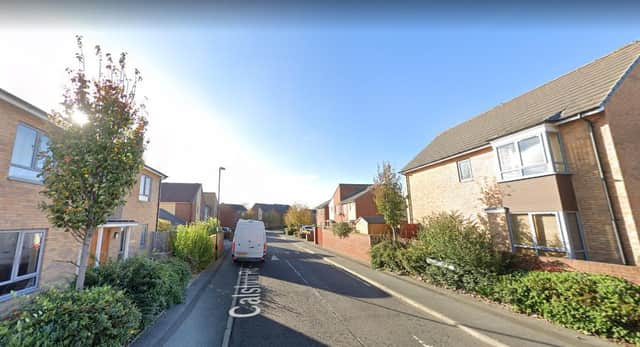Beauty business loses appeal over semi-permanent make up operation in Sunderland garage


Earlier in 2021, Sunderland City Council’s planning department refused plans for a property at Calshot Road in the Castle ward.
The application involved converting a garage into a ‘semi-permanent makeup business’ with a range of works.
Advertisement
Hide AdAdvertisement
Hide AdThis included putting up a false wall and a door from the garden into the garage, along with fireproof plasterboard then decorating.
According to planning documents, the application was classed as retrospective as it was carried out without planning permission.
Following consultation, council planners refused the plans on several grounds including increased parking and highway safety, as well as noise from future customers having a “detrimental effect on the amenities of nearby residents.”
The applicant later lodged an appeal against the city council’s ruling, with the matter sent to the Planning Inspectorate and planning inspector Alison Scott appointed by the Secretary of State to decide on the plans.
Advertisement
Hide AdAdvertisement
Hide AdAfter considering all representations, the planning inspector upheld the council’s decision to refuse the makeup business plan and dismissed the appeal in late-November 2021.
The planning inspector concluded there would be no “detrimental harm” to the living conditions of neighbours from the proposed use in terms of “noise or disturbance from visiting customers.”
This included the noise from beauty procedures being contained within the building and the business being limited initially before expanding services to “no more than three customers during the day.”
However, the planning inspector raised concerns about highway safety impacts in terms of the development potentially “amplifying” local parking issues.
In a visit to the site, the planning inspector also observed parking pressures in the estate.
Advertisement
Hide AdAdvertisement
Hide AdThis included visitor parking laybys being “heavily occupied” by parked vehicles with a “knock-on effect onto the local roads with on-street parking and cars mounted on the pavement within close range of the appeal site.”
While acknowledging the appellant intends to run the business in a “reduced capacity to begin with,” the planning inspector concluded that the proposals would “intensify parking conditions within the local area where parking levels are already stressed.”
The planning inspector added she could not be certain that the proposal, and removal of parking provision through the change of use of the garage, would not “displace the appellant’s own vehicle to elsewhere within the local area.”